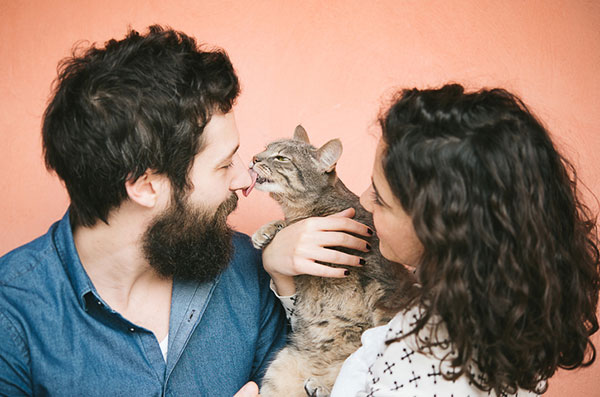The festival of loving cats but having allergies had savior called Hypocat
Understanding the "misery" that cat lovers suffer, scientists have studied a vaccine that addresses this problem.
Cats love cats but must keep their distance from allergies because they have received a good signal from scientists, as they have developed a vaccine that makes cats less likely to cause allergies. But gladly, we will have to wait at least until 2022 for this product to be completed.

The vaccine makes cats less likely to cause allergies.
Vaccine of the same name was developed by Hypocat company based in Switzerland. Last April, Hypocat published the results of a vaccine study in the Allergy and Clinical Immunology allergy magazine, detailing a very smart strategy for dealing with cat allergies.
This vaccine does not try to reduce the sensitivities of the immune system of people with allergies like current therapies. Instead, it tries to influence the compound that is allergic to cats, which is a protein that they produce themselves called Fel d 1 . To perform this procedure, it is necessary to switch each version of the genetically engineered protein into a virus -like particle that is derived from a plant virus (only particles and they are unable to cause disease).
About 90 percent of people who are allergic to cats because they produce antibodies to Fel d 1. If the results are successful, the vaccine can make "king" not cause allergies by significantly reducing the amount of Fel d 1 they created.
Through many different experiments, more than 50 kittens were vaccinated into the hind legs. In the latest experiment, many cats were given three doses within nine weeks, some were also re-vaccinated 6 months later.
Accordingly, all cats showed that the reaction to the allergen and the repeated injections helped keep the antibody level always high. In the laboratory, antibodies separated from a cat's blood sample also seem to neutralize Fel d 1, while at the same time they themselves produce less Fel d 1 in saliva and sebaceous glands. And when mixing these samples with the blood of allergic people, the results are less likely to cause irritation.

This vaccine does not cause dangerous or long-term side effects for cats.
Most importantly for the animal lover, this vaccine does not cause dangerous or long-term side effects for cats. The simple reason here is that Fel d 1 has no important function in cats. Some cats already have very low Fel d 1 levels without showing any health problems. In addition, the vaccine does not completely remove the protein.
This is good news, but there are still many things to wait for because this is just a pre-clinical experiment. According to Gizmodo , Hypocat's CEO Gary Jennings said they discussed with US and European pharmaceutical approval agencies, the company began conducting clinical trials and laying the foundations for mass production. . But even if the vaccine passes the tests with the results beyond expectation, you still have to wait a few years before it is available on the market.
"If all goes according to plan, we hope to be able to release it by 2022," Jennings said.
So please continue and look forward to the day when the "sen" is no longer allergic to your "love" anymore.
- The truth is less known about allergies
- The 'strange' cats in the world
- Tragedy of those who suffer from the 5 most strange allergies on the planet
- Breeding cats do not cause allergies
- How to deal with facial allergies
- Infant food allergy and how to manage
- Hypoallergenic cats are released to the market
- Celebrating the festivals jostling each other in the world
- Strange festivals but attract customers all over the planet
- Prevention of inflammation and allergies in the eyes
- Brilliant colors at the 2015 Dalat flower festival
- Did you know how to caress cats properly?
 13 causes of non-itchy rash
13 causes of non-itchy rash How the mouse with human ears changed the world?
How the mouse with human ears changed the world? The truth about 'fried rice syndrome!
The truth about 'fried rice syndrome! What is dental implant?
What is dental implant?